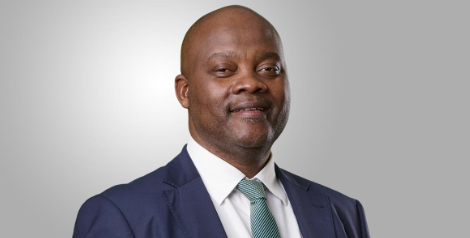Nedbank’s chief operating officer, Mfundo Nkuhlu, has explained how the financial services firm is navigating a mute economic growth environment characterised by unenterprising interest rate cuts.
According to Nkuhlu, the absence of interest rate cuts has affected both consumers and corporates, leading to a reduction in overall credit extension.
However, the green bank saw 6% growth in headline earnings to R8.4-billion, and return on equity improved slightly to 15.2%, compared to the same period last year.
Nkuhlu spoke to Sunday World this week after the bank released its 2025 interim results.
The South African Reserve Bank has since last September trimmed interest rates from 8.25% to 7%.
However, critics believe the rate cut should have been more aggressive, as the inflation has eased to the lower levels of the Reserve Bank’s inflation target range of between 3% and 6%.
US tariff regime
Said Nkuhlu: “We certainly experienced the economy as having grown much slower than we’d expected.
“In the first quarter [of 2025], quarter-on-quarter, the economy grew 0.1%, which really was much slower than … a strong last quarter of 2024.
“There are many things that impacted this, including the global climate, characterised by the uncertainty of the US tariff regime against the backdrop of geopolitical tension and wars that we have seen, which dampened global growth, and we observed that.”
He stated the slow economic growth is reflected in muted average advances growth of 6% … which is also indicative of muted demand in the market and slow closure of debt.
Advances refer to short-term funding to meet urgent requirements.
“We certainly had expected that there would have been slightly more interest rate cuts building up to the half year.
“We saw less of those, perhaps with the exception of the most recent 25 basis point cut that came through in July.
It is understandable why the rate reduction would have been slower, given the volatility and uncertainty in the market caused by US tariff policy, as well as geopolitical tensions and wars that characterised the first half of the year.
That would have meant that lower rate reductions would have left consumers managing their debt exposures, and so the consumer is still way down the debt levels.
People-intensive business
On the corporate market side, with muted (consumer) demand, corporates were not growing their front book strongly.
The impact was reflected in net interest income, which grew only at an average of two percentage. “It was a muted performance on credit extension across the board,” said Nkuhlu.
The bank’s headline earnings grew by 6% to R8.4-billion.
“This is largely driven by growth in non-interest revenues as well as the reduction of our impairment charge, which dropped from 104 basis points to 81 basis points in this reporting period.
“Expenses are slightly ahead of our guidance at 9%, and you can tell that the mainstay of the performance at half year really came through from non-interest revenues and the adjustment on the impairment charge.”
Non-interest revenues refer to bank fees and penalties on late payments that banks charge consumers for products like home and vehicle loans and credit cards, among others.
“The major driver of costs in a bank is people. We are still a people-intensive business, and so if I look at the salaries and wages line, that grew at 7%, overall reflecting the levels at which the wage and salary negotiations were concluded for bargaining with the workers.”
Nkuhlu also attributed the operating expenditure growth to travel costs that came through in the reporting period.
“The amortisation charge for our IT asset came down, which reflected both the completion of our managed evolution transformation journey as well as the realisation of benefits now on our IT channels.
“That being the case, in the period ahead … given that we continue to invest in our technology systems and digital capability, increasingly with the focus on card and payment channels, we would expect that we will pick up.
Business confidence
He said the revenue did not grow strongly, resulting in pressure on the gross operating income numbers.
“And now you have costs growing stronger that resulted in the negative Jaws ratio of 4%. So you have costs growing ahead of growth in revenues, and that is reflected in the cost-to-income ratio sitting at 57%,” he said.
Nkuhlu, however, said once the bank gets growth going and also increasingly transacts through lower-cost-to-serve digital channels, that cost line should be coming down in the period ahead.
Touching on the government of national unity, more specifically the passing of the budget later than anticipated, he said that undermined business confidence.
“It’s a new phenomenon for the country, and it led to uncertainty about how that would be resolved and how quickly expenditure would flow on the back of that, which meant lower levels of business confidence and lower levels of investment expenditure.”



